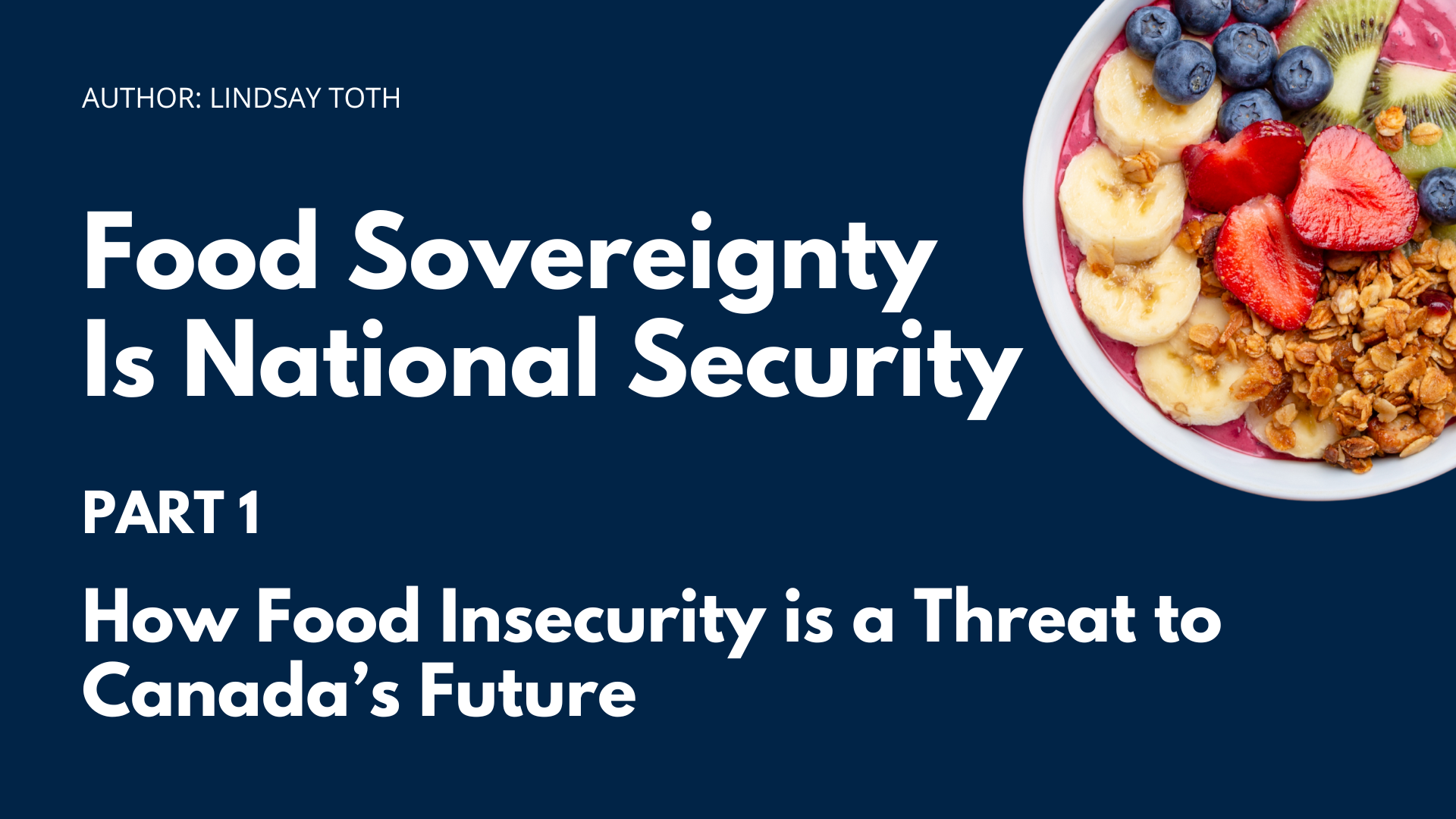Food Sovereignty Is National Security | How Food Insecurity is a Threat to Canada’s Future
By: Lindsay Toth
If Canada wants a secure and resilient future, we need to start treating food as more than just a grocery store issue. Food is foundational to our well-being, our economy, and our national stability. It is critical infrastructure, just like energy, water, or transportation, and it needs to be part of our national security conversation.
Right now, food insecurity in Canada is at its highest level in recorded history. According to Statistics Canada in 2024, 25.5 percent of people in ten provinces lived in a food-insecure household. That’s about 10 million people, including 2.5 million children, struggling to afford the food they need to thrive. The number of people living in severely food-insecure households rose to 6.7 percent in 2024, up from 6.0 percent the year before, and it’s still climbing.
One in three children in Canada, (32.9 percent) now lives in a household where meals are skipped, quality is sacrificed, and hunger is a daily concern. The burden is not equally shared. 39.9 percent of Indigenous households living off-reserve are food insecure. These statistics don’t even capture the full extent of the crisis in on-reserve and remote northern communities, where food insecurity is chronic and often far more severe.
For many Indigenous communities, this crisis goes beyond income or access. It’s about the erosion of traditional food systems, the legacy of displacement, and the ongoing impacts of colonization. Indigenous food sovereignty (the right to grow, gather, hunt, and share food in culturally and ecologically meaningful ways) is a critical part of the solution. Reclaiming and protecting these systems is not just an act of survival. It is an act of self-determination, healing, and nation-building.
Across Canada, our food system is showing signs of deep strain. Urban areas depend heavily on centralized supply chains that can be disrupted by anything from cyberattacks to extreme weather to transportation strikes. In the North, high food costs and limited access already make grocery shopping a challenge, and when supply chains break down, the consequences are immediate and devastating.
This isn’t just a public health issue. It is a risk to our national stability. Hunger has long been linked to social unrest, economic instability, and breakdowns in public trust. We’ve seen this play out globally, from the Arab Spring to more recent unrest in South Africa, where food insecurity sparked wider disruption.
When people are hungry, it affects everything. Food insecurity leads to higher rates of chronic illness, mental health challenges, and early death. It weakens our workforce, strains healthcare systems, and puts enormous pressure on already stretched public services. It also chips away at our sense of trust, community, and safety.
We know that government supports like the Canada Child Benefit and the GST Credit can help. But we also know they are not enough. What’s needed now are bold, systemic solutions, including secure incomes, a stronger social safety net, and meaningful support for Indigenous food sovereignty.
The truth is simple: when people can’t eat, society breaks down. Food is not just a human right. It is a building block of national strength. When food systems fail, whether due to rising costs, trade disruptions, or climate disasters, the ripple effects are felt in every corner of our country. A hungry population cannot build a strong future.
To move forward, we must treat food not only as a source of nourishment, but as a source of power, resilience, and unity. Investing in food security and food sovereignty is one of the smartest, most compassionate, and most strategic choices we can make for Canada’s future.






